QuestionHi Reverend Abbot
I have 2 green cheeks who share a cage. They are +/- 10 yrs old, both very lively, and eat well. But at the moment late at night, 10pmish, one or the other starts to sneeze continuously. Claudie, the main culprit has a wet discharge and sounds out of breath or wheezy. They only really settle down when I keep them on me. It is winter here, but we don't really have much of a winter, 10 celsius at night, but I do ensure they are not in any draught. They also sleep together in a nest box which is regularly cleaned. Since they appear in good health I have not been too worried, but this has been going on for several years now,especially at this time of year and I was wondering if they need an antibiotic or a vitamen supplement. I would appreciate any help as this seems to be a very uncomfortable problem for Claudie.
Thank you
Regards
Helen Oehler
AnswerVery observant of you to notice it's this time of year that does it. Many birds suffer allergies, even to themselves!
This is moulting season and as they break open the sheaths to new feathers while removing the 'old' ones, the air becomes full of nearly invisible dander. Caged/confined like they are - these things are irritating. Not just to birds, but to people.
As long as you're not seeing any color to the discharge and the birds are clearly eating well, their droppings are normal, they aren't fluffing, losing balance, sitting at cage bottom and other obvious signs of illness, it should pass.
Keep things well vacuumed at this time of year (we do it twice a day, every day) and consider an air purifyer/filter. They don't perform miracles, but they often help a lot.
I have to strongly urge to never use an antibiotic without a definitive diagnosis of a bacterial infection. The reason is that bacteria quickly mutates in order to survive the anti-bacterial. Then, when you really need it - it won't work. You'll end up spending hundreds of dollars, sometimes even thousands, trying to treat what should be a simple condition that ends up being "mega bacteria" (we've had this happen. We learned our lesson).
Also, vitamin supplements - if part of their typical food is probably fine, but we like avoiding these too. We come up with creative ways to get them to eat the right foods instead.
By the way, never put anything in their water. No matter what the sales clerk says or what you may see on the label of these things - please never add things to their main water supply.
See us! www.4Animalcare.org (click on 'birds')
Good luck!

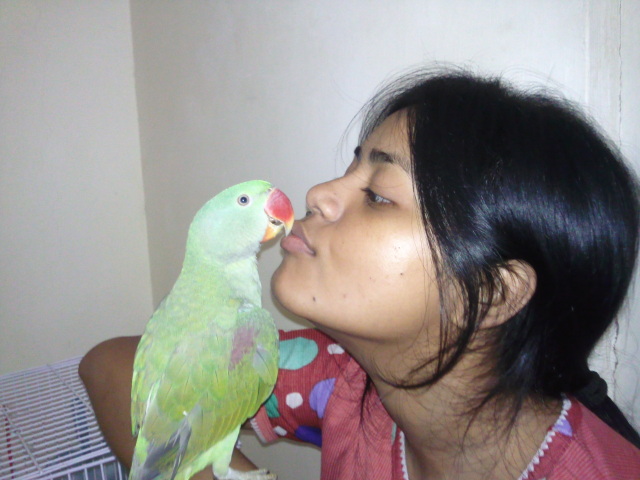 can i give my parrot chole(chana) called in hindi
Question
my little chaddi alexa
dear sir,
can give chan
can i give my parrot chole(chana) called in hindi
Question
my little chaddi alexa
dear sir,
can give chan
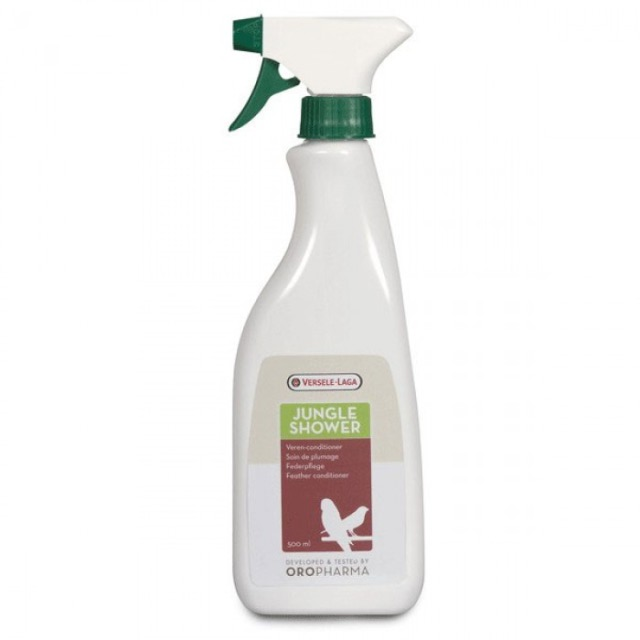 Indian Ringneck Health Issue
QuestionI have an Indian Ringneck who had been neglecte
Indian Ringneck Health Issue
QuestionI have an Indian Ringneck who had been neglecte
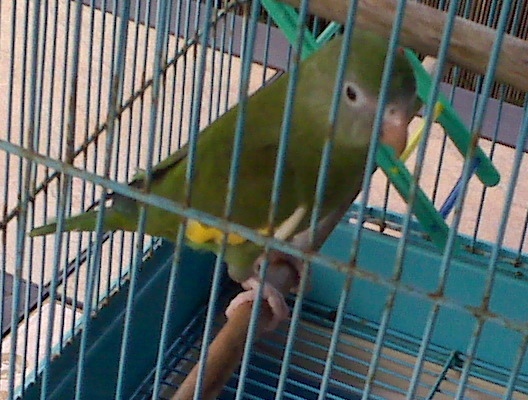 What type of parrot is this?
Question
Friendly bird
A week ago ths small parrot flew
What type of parrot is this?
Question
Friendly bird
A week ago ths small parrot flew
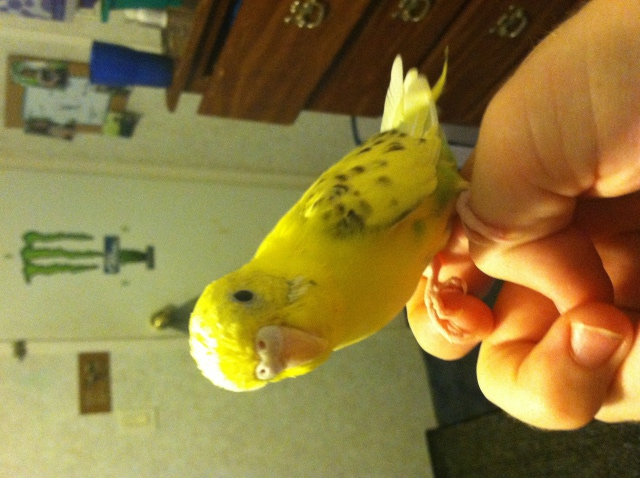 Parakeet gender
Question
Parakeet
Hi, I looked for an expert und
Parakeet gender
Question
Parakeet
Hi, I looked for an expert und
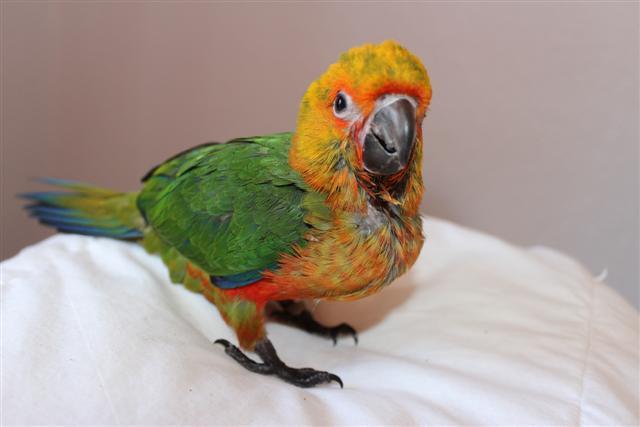 Jenday Conure Weaning?
Question
Castor the Conure
Hi
I have a 9 week o
Jenday Conure Weaning?
Question
Castor the Conure
Hi
I have a 9 week o